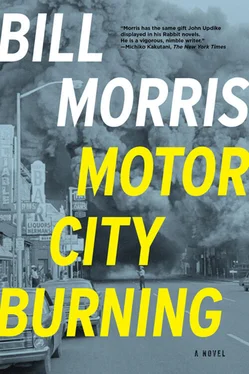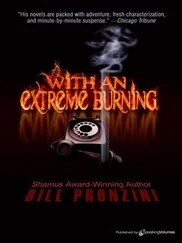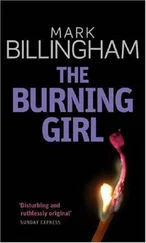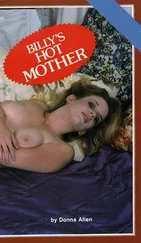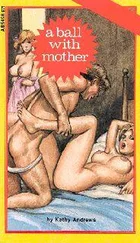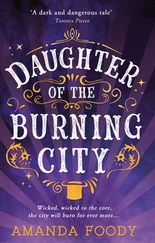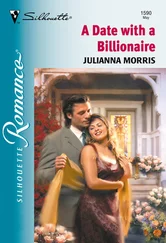“Even on the porch I couldn’t sleep,” he went on. “Sometime way past midnight my brother knocked on my door, said there was a party at a blind pig down on Twelfth Street for a guy who’d just gotten home from Vietnam. I told him I wasn’t in a party mood. He gave me the address in case I changed my mind, then told me he was going to the Algiers later cause they have a rolling craps game on Saturday night that sometimes runs for days.”
“You mean the Algiers Motel?” Octavia said.
“Yeah. So I try to go back to sleep but it’s too hot and too noisy, sirens off in the distance. I musta dozed off eventually cause the telephone woke me up sometime after sunrise. It was Walter Mitchell, an old buddy from college, wanting to know what was going down with the riot. I said, ‘What riot?’ There he was, hundreds of miles away in D.C., filling me in on what was happening a few blocks from where I was sitting. Walter told me he’d just gotten back from photographing the riot in Newark, and his editors at Ebony wanted him to get on the next plane to Detroit. I agreed to pick him up at the airport.”
“Now this is Sunday morning?”
“Right. Soon as Walter gets off the plane he asks me to drive him to the Sheraton Cadillac Hotel so he can drop off his suitcase and pick up his press credentials. We got stopped at half a dozen police checkpoints on our way into the city. The farther we drove, the scarier it got — police cars and fire trucks with their sirens going, this huge black cloud drifting toward downtown. We saw dozens of buildings on fire, saw a man throw a cinderblock through a plate-glass window at an A&P supermarket and people poured into the store. People were cheering them on, like it was a game or something.”
Octavia touched his arm. “Keep your voice down,” she said. Willie’s eyes swept the restaurant. There were only three other customers in the place — a black couple in church clothes attacking a pile of clams, and a white guy two tables away in an ugly Hawaiian shirt drinking a pitcher of beer and reading a newspaper.
Willie lowered his voice. “When we got to the hotel Walter started making calls to police headquarters and a bunch of TV and radio stations. Like a foreign correspondent arriving in some war-torn capital, cool as could be. Someone told him the action was on the West Side, so we hopped in my car and followed a fire truck out Grand River to a burning warehouse. It was horrible but beautiful too — flames shooting through the roof of the building, hundreds of feet into the air. There were gunshots and I saw Walter crouching behind a yellow Cadillac snapping pictures of the firemen as they scrambled back to their truck. Then the windshield of the Cadillac exploded and Walter crawled back to my car on his belly. There were pieces of glass stuck in his hair. He wanted to go, but I told him to look across the street. The flames from the warehouse had jumped to the roof of a little two-story house next door. Women and children were running out of the building carrying the most pitiful shit you ever saw — lamps, hats, dolls — while two men stood in the yard and sprayed the building with a garden hose. A garden hose. Walter got pictures of them. Some of the best pictures he took.”
The plump waitress appeared at Willie’s elbow. “Anything else here?”
“Just the check, please, ma’am.”
When the waitress was gone, he said, “It was getting dark, so we headed back to my crib. Now there were National Guard at the checkpoints, and some of them were so jittery I could see their rifles shaking. But the scariest thing was the carloads of white men cruising around with shotgun and rifle barrels sticking out of their windows. I thought I was back in Mississippi.”
“Wasn’t you scared?”
“Hell yes I was scared. When we got back to my place Walter called his boss in Washington, Thomas Henderson, told him we’d go back out after curfew was lifted at sunrise. The noise outside went on all night — gunfire, screams, sirens, laughter, breaking glass.”
“You think to keep your lights off?”
He ignored the question. “In the morning I drove Walter downtown to police headquarters for a press conference. The city looked like it’d been bombed, fires still smoldering, glass and rubble everywhere. All I could think was that the race war had finally started.”
“Was you glad like I was?”
“No, I was just numb. Walter spent the day taking pictures — families sitting on their furniture in front of their burnt-out houses, a looter walking down the middle of the street hauling a bass fiddle, some wild stuff. It was starting to get dark when a fire truck passed us on Lawton and Walter told me to follow it, said he wanted to talk to some firemen. I followed it to the fire station at the corner of Lawton and Warren and I stayed in the car while Walter went off to do some interviews. I saw a tank at the end of the street. When a ladder truck pulled out of the firehouse, Walter hopped back in the car and told me to follow it. That’s when I heard someone shout, ‘Halt! You in the pink car! Halt!’
“I stopped the car. A Guardsman walked up and I handed him my license and Walter’s press credentials. He told us to get out the car. Then he told us to put our hands on the hood and spread our feet. A state trooper walked up and said, ‘They’re okay, they’re press,’ but the Guardsman said, ‘I don’t give a fuck who the niggers are.’ He patted us down for weapons, then he jabbed me in the shoulder blades with the butt of his rifle and told us to move. I realized he was pushing us toward two lines of firemen. One of them spit in my face and suddenly they were all spitting, kicking us, punching. I ran with my head down, trying to fend off the blows, trying to reach the station house without falling because I was afraid that if I fell down they’d stomp me to death.”
“But I don’t understand,” Octavia said. “You had ID and you weren’t doin nothin wrong.”
Willie smiled. It was working. “We were put in a small detention room,” he went on, “and we could hear the Guardsmen taunting and beating other guys outside, screaming things like ‘Castrate that coon!’ and ‘Beg, nigger, beg!’ Every time a Guardsman walked by the room Walter started yelling about his press credentials, but the men told him to shut up or they’d beat him some more.”
“You didn’t complain?”
“No, I knew from experience we were past the point where complaining or pleading would do any good. After a while we were all led outside into a paddy wagon. I noticed my Buick was still parked at the curb where I’d left it. On the way downtown some of the men moaned about their injuries, others bragged about the sniping they’d done, the stores they’d looted. When the paddy wagon finally stopped we were led into a large building. I realized it was the back of police headquarters, the building where Walter had attended the press conference. Inside we were photographed, fingerprinted and told to sign a card that said Curfew Violation. Walter and I both refused. We demanded to make a phone call and see a lawyer but the cop with the camera laughed, and we were led downstairs and turned loose in a huge garage. The floor was greasy and there was a single spigot and a rain drain in the corner — our latrine. I found a dry patch of concrete and fell asleep.”
“You was able to sleep in a place like that?”
“I was exhausted and sore. Besides, I’ve seen worse.” Her eyes widened, and he felt another trill of satisfaction. “When I woke up there was sunshine coming through the caged windows. My back and ribs hurt and I had a wicked headache. Walter came out of nowhere and handed me a bologna sandwich and a cup of water. The sandwich tasted like cardboard and it hurt to chew, but I ate the whole thing and drank all the water. A lot more prisoners had arrived while I was asleep, and the heat and the smell were enough to knock you down. Everyone had been beaten. One guy’d been beaten so bad his left eyeball had popped out of its socket and was dangling by a thread on his cheek. Another guy was having convulsions, twitching on that greasy floor, foaming at the mouth.”
Читать дальше
